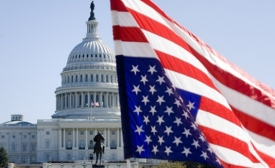foreign policy
It is by now well-known that the process of globalization, beginning in the 1960s and picking up pace rapidly in the late 20th century, quickly changed the context for international affairs. Globalization produced increased contact among the peoples of the world, a rapid expansion of interdependence among nations, and an explosion of new actors in international affairs.

The USC Center on Public Diplomacy hosted a discussion about public diplomacy and foreign policy objectives of a second Obama administration.
This panel of USC experts analyzed possible new directions, highlighting Russia, Mexico, China, the Middle East, and the overall governance of U.S. foreign policy.
Public diplomacy through the distribution of aid has been a staple component of the public diplomacy strategies of various countries. This month we have seen numerous governments provide aid to the people of Haiti. Since the tragic earthquake of January 12, countless stories of aid diplomacy have appeared in the news.
When I think of the "implications for public diplomacy" in the wake of the 2012 election, I can only come with—zero, zip, zilch... All of this is to say that few elements of our foreign policy will, for awhile, be a significant part of our national conversation. Thus, a small subset of our foreign policy concerns, like public diplomacy, will be even less salient.
Six Taiwanese tourists arrived in New York on Thursday as the first from their disputed island to be allowed to visit the United States without visas, officials said. Taiwan is the first territory of any kind which does not have formal diplomatic relations with the United States to get visa waiver status, said its de facto ambassador in New York, Andrew Kao.
Last November, Michelle Makori, a business reporter formerly of Bloomberg News, joined a small group of seasoned Western television journalists for a whirlwind tour of China. The trip, arranged by China Central Television (CCTV), the world's largest broadcaster, culminated in a visit to the network's two headquarters
"Good use of soft power objectively helps us reach priorities in international activities," Deputy Foreign Minister Gennady Gatilov told a meeting of the Public Chamber's Council for International Cooperation and Public Diplomacy.
“Good use of soft power objectively helps us reach priorities in international activities,” Deputy Foreign Minister Gennady Gatilov told a meeting of the Public Chamber’s Council for International Cooperation and Public Diplomacy. Among Russian soft power tools, Gatilov listed the extension of cultural, informational and humanitarian presence abroad.







